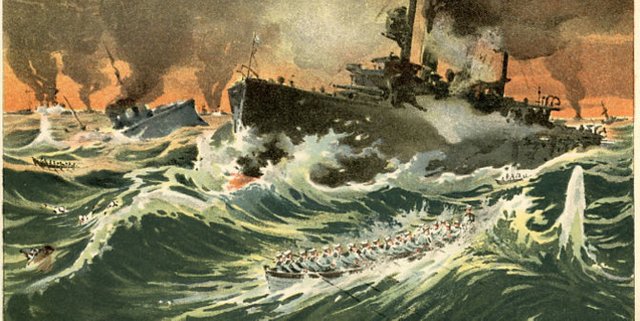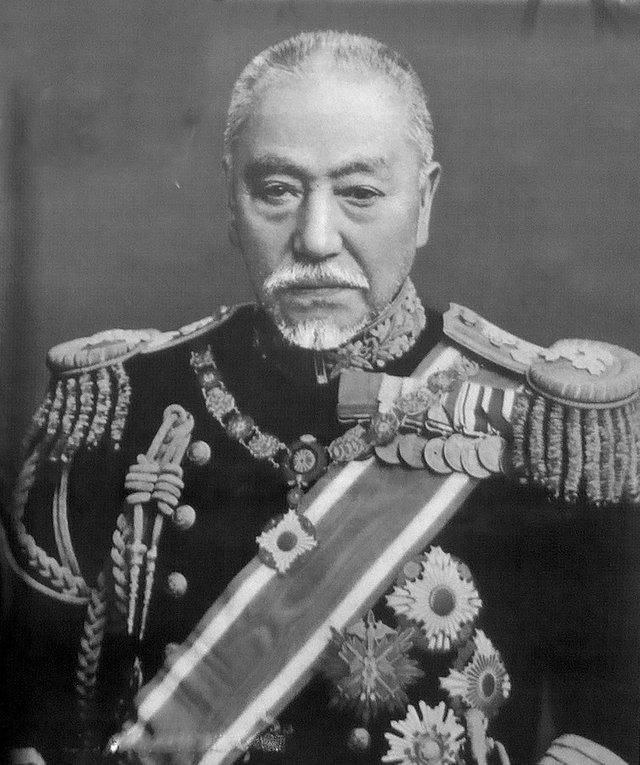The Battle of Tsushima, the Russian Navy's crushing defeat in the hands of Japan

The Battle of Tsushima was the culmination of the Russia-Japan war which took place from February 8, 1904 to September 5, 1905. The defeat of Russia made them surrender Manchuria, China to Japan. Before losing o Japan, northern Manchuria was under Russian intent.
The Japanese attack on several Russian warships in the Port of Arthur, Vladivostok made Russian Tsar furious. The Russian military ordered Admiral Zinovy Rozhestvensky to dispatch the Baltic Fleet to the Port of Arthur.
Russia believes, Japan does not fully produce the territorial sea around Vladivostok in its impromptu attack on the Port of Arthur. In its attack, the strength of the Japanese fleet was very drastic where their ships suffered severe damage.
Russia then dispatched 38 of its warships to the Port of Arthur, which consisted of 8 battleships, 3 coastal warships, 6 cruisers, 9 destroyers and 12 other warships. Even so, the trip to Vladivostok was a 33,000 kilometer journey from the Baltic Sea.

Marshal-Admiral The Marquis Tōgō Heihachirō ( "The Nelson of the East" )
During his eight-month journey, the First Pacific Squadron Commander, Rozhestvensky never expected his Japanese fleet to be awaited. The Japanese Fleet was led by Togo Heihachiro Admiral who had calculated their arrival.
Togo has been preparing for an ambush since long ago. He placed all his fleets around Pusan, Korea. The eagerly awaited force finally arrived on April 26, 1905 night, Rozhestvensky's fleet arrived at Tsushima. Rozhestvensky's efforts to prevent his fleet from being detected failed due to accidental errors.
Not far from the Russian fleet, the Japanese cruiser Shinano Maru detected light from a Russian medical ship, Oryol. Surprisingly, instead of notifying the danger of waiting in front of the Russian fleet, the crew even told the Japanese sailors that there were still other Russian ships behind. After a few minutes, the ships appeared. As a result, the disguise was revealed. The Shinano Maru ship then sent a telegraph message containing 'Enemies in box 203' to Admiral Togo. Within five minutes, Togo prepared its troops and was ready to welcome their enemies on the high seas.
Under his leadership, Togo welcomed the entire Russian fleet around 1:40 Japanese time with 89 of its warships, 4 of which were battleship. Togo divided his fleet into two columns and ordered the ships behind him to form a U-turn.
This method turned out to be quite effective in preventing the rate of dozens of Russian-owned vessels. Gunfire from both sides muttered. The advantage was achieved by the Japanese fleet, from a distance of around 6,200 meters, their shots hit the Knyaz Suvorov ship, and made it suffer severe damage.
Gunfire and combat tactics carried out by Japan are very difficult to answer by Russia. Two Borodino and Alexander III warships were sunk. Until late evening, the main force of the Russian fleet was almost completely damaged.
In the middle of the night, Togo launched a massive attack in the form of 37 torpedo ships and 21 destroyers. This chain attack made the Navarin ship and paralyzed Sisoy Veliki's ship in three hours. Two cruisers reported severe damage. This condition made the entire crew evacuated before sinking. In contrast, Japan only lost three torpedo ships.
The next day, when the sun starts to appear. Togo began to spread threats against the Russian fleet. Amid the cannon fire, Rear Admiral Nikolai Nebogatov decided to surrender. The signal is given at 10.34 and Togo answered only at 10.53.
Despite declaring surrender, Togo decided to keep hunting down and sink the remaining ships. Of the entire fleet, only three had escaped and reached Vladivostok. While the ship leader and his commanders were arrested as prisoners of war.
This defeat was mentioned as the beginning of the deterioration of Russian people's support for Tsar Nicholas II. Nicholas' power was brought down in the Bolshevik revolution led by Lenin, which made him and his entire family sentenced to death in front of his people.